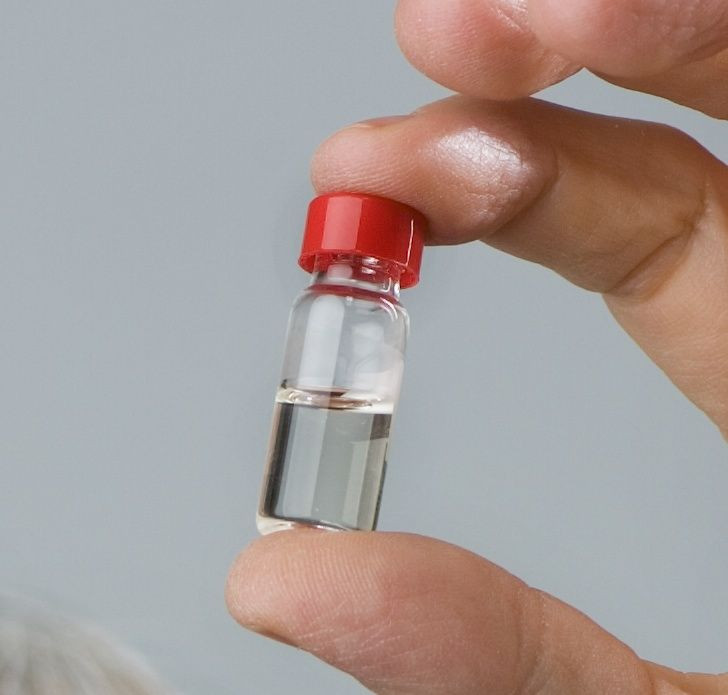Male Birth Control, Like Vasalgel, Is Closer To Becoming A Reality; Here's Everything We Know So Far

When it comes to sex, the traditional narrative is men expect women to cover their birth control. This is partly due to the fact there are only two available methods for men — a condom or vasectomy — compared to the several methods available for women, from oral contraception, to intrauterine devices and implants, even cervical caps. But as researchers work tirelessly to develop alternative methods for men, they’re noticing how much men’s attitudes have changed.
“These aren’t the men of the 1970s,” Elaine Lissner, executive director of the Parsemus Foundation, told Medical Daily. “They’re not our grandfathers, but they’re 20-, 30-, and 40-something-year-old men. They’re the children of baby boomers who need contraception, [and today] there’s a lot more openness about sexuality and bodies.”
Since 2010, Lissner has been leading a small team working to develop Vasalgel, a non-hormonal polymer gel urologists can inject into the vas deferens ("the tube the sperm swim through") after first making a small slit in the scrotal skin. The slit is too small to require stitches, but it's just big enough to be considered a minor surgical procedure. Urologists, however, don’t take any more time than they would for your standard vasectomy, about 10 minutes (though Lissner suggests this time depends on who's performing the procedure). In which case, Lissner says Vasagel can basically be described as “a gel vasectomy.”

Or rather, a reversible gel vasectomy. Lissner's team has conducted 12-month studies on rabbits and olive baboons to find not only is this method effective, but a baking soda-type solution could "flush out" the gel. So not only is Vasagel the closest to being marketed to men, but it could also leave “that door cracked open,” Lissner said.
Vasagel is slated for clinical trials over the next two years for men interested in vasectomy (as researchers are still in the process of testing reversibility). Admittedly, Lissner said this process is more straight forward than your average drug process, so a lot of the continued research depends on public support and finding people who care about and believe male birth control is important.
If all goes according to plan, Vasagel could be on the market by 2018.
“You often will hear about male contraceptive being five to 10 years away, which to me means possibly never,” Lissner said. “Vasalgel is as soon as three years away. A lot hinges on the reversal studies we’re doing now, because if it’s not reversible, a gel vasectomy is not that exciting; reversibility is key.”
Men Are Braver Than We Think
The idea of a vasectomy may be off-putting, but believe it or not, an increasing number of men are opting for the procedure. Lissner cited about half a million men go under the knife each year, and about one in six married men over the age of 35 have already had the procedure done.
The appeal of a vasectomy is its long-term use, much like the IUD for women. People forget things, Lissner said — long-acting birth control offers “way more in real world use than, say, pills.” Right now, over 26,000 men are on the mailing list to receive new information on Vasagel’s upcoming clinical trials. Lissner added a similar number of men have already filled out a survey on multi-year male birth control.
These men fall into two groups: The first is men in long-term relationships with partners who have negative experiences with their form of birth control, such as reduced libido and cramps from an IUD. The second, larger group of men are men who are dating and “don’t want to get a phone call about an ‘oops,’” Lissner explained. These men are interested in having more control of their sexual encounters.
“It turns out men are braver than we think,” Lissner said.

No Side Effects
In the rabbit studies, Vasalgel resulted in azoospermia (no sperm) throughout the year-long study, which is also on par with the efficacy of your standard vasectomy. And when vasectomies are done “by the best” — a procedure done by a specialist could vary from one done by a general practitioner — Lissner said the rate of effectiveness is “99 percent-plus.”
“The hope is [Vasagel wil last] multiple years, 10 plus,” she added. “You could make a rough parallel [to women], saying it’s like a male IUD.” Among women, the IUDs has become the most popular and effective form of birth control.
Presently there are no side effects. However, Vasalgel is inspired by a similar polymer contraceptive called RISUG, which is in advanced clinical trials in India. And in those trials, some men have experienced testicular swelling. Otherwise Vasagel's one, potential issue could stem from the following waiting period.
For normal vasectomy, men are asked to wait three months or 20 ejaculations before having sex — “and that’s when failure happens,” Lissner said, because men don't always wait. Yet, having sex too soon keeps alive “any sperm that were downstream” during the initial procedure. While Vasagel's waiting period could be as little as one month, it'll still determine the gel's effectiveness.
It Shouldn’t Cost More Than A Flat Screen TV
Easy access to birth control (all its forms, as well as general information and resources) remains a prevalent issue for both men and women. Increased access leads to better health outcomes, like a reduced number of unplanned pregnancies and sexually transmitted infections (STIs). In which case, Lissner and her team have kept accessibility in the back of their mind throughout the entire development process.
“The goal is it should be accessible as far as price,” she said. “It shouldn’t cost more than a flat screen TV. If it’s so expensive people can’t use it, our job isn’t done."
You might be thinking Vasagel isn’t a pill at all, and most headlines have alluded to an actual pill for men to take. While there are real pills (Lissner is also supporting the team developing the "clean sheets pill"), other gels, even implants in the works for men, they’re all in the earlier stages of research and development. Vasagel is the closest to being ready to market.
That said, if the multi-year birth control is soon available to men, it doesn't mean men (or women) should abandon other forms of birth control. Vasalgel doesn't protect against STDs and, again, if men don't wait long enough to have sex after their procedure, there's still a chance it can fail and result in pregnancy. They are, as most birth control methods are, meant to be a supplement.
As The Telegraph recalls, "condoms didn’t go away after the pill or [IUDs] became commonplace. As a barrier method, they will still play an important role against sexually transmitted infections."
"It’s taken longer than we hoped to figure out everything," Lissner said. "We’re a tiny team and we pat ourselves on the back for being alive and kicking."



























